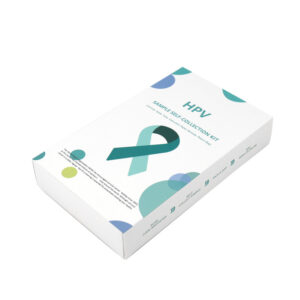HPV 對生育能力的影響: 你需要知道什麼
2023-08-16
人乳頭狀瘤病毒 (人乳頭瘤病毒) 是一種常見的性傳染感染,影響男性和女性. 雖然大多數 HPV 感染不會引起任何症狀並會自行消失, 某些高風險菌株可能導致各種健康併發症, 包括對生育的潛在影響. 在本文中, 我們將探討 HPV 與生育能力之間的關係, 包括對男人和女人的影響, 懷孕期間的潛在風險, 和可用的預防措施.

HPV 與女性生育能力
1. 子宮頸健康: HPV感染會導致子宮頸的異常細胞變化, 增加宮頸癌的風險. 在某些情況下, 宮頸發育不良或癌症的治療可能會影響生育, 例如頸錐或子宮切除術.
2. 盆腔炎症性疾病 (PID): HPV感染, 特別是與其他性傳播感染結合在一起, 可以導致pid. PID會導致疤痕和損壞輸卵管, 可能導致不孕或異位妊娠.
3. 輔助生殖技術 (藝術): HPV的女性在體外受精過程中可能會面臨挑戰 (IVF) 由於病毒對胚胎質量或植入成功的潛在影響而導致的程序.
2. HPV 與男性生育能力
1. 精子質量: 研究表明,HPV感染會影響精子運動, 形態學, 和DNA完整性, 有可能降低男性生育能力.
2. 傳輸給合作夥伴: 患有HPV的男性可以將病毒傳播給其女性伴侶, 增加宮頸異常和潛在生育問題的風險.
3. 輔助生殖技術 (藝術): 與女性相似, HPV的男性在輔助生殖程序期間可能會降低成功率, 包括宮內授精 (IUI) 和IVF.
HPV和懷孕
1. 垂直傳輸: HPV可以在分娩期間從受感染的母親傳播到嬰兒. 雖然大多數情況不會導致並發症, 某些高風險的HPV菌株會導致嬰兒呼吸乳頭瘤病病.
2. 懷孕並發症: 一些研究表明,HPV感染與早產風險增加之間的潛在聯繫, 膜過早破裂, 和低出生體重. 然而, 需要進一步的研究來建立確定的關聯.
3. 預防: 懷孕前對HPV的疫苗接種可以顯著降低傳播給嬰兒的風險和潛在的懷孕並發症.
預防措施
1. 疫苗接種: HPV疫苗, 例如Gardasil和Cervarix, 在防止最常見的高風險HPV菌株的感染方面非常有效. 在性活躍之前,建議男性和女性進行疫苗接種.
2. 安全的性行為: 使用和限制性伴侶的數量一致的避孕套可以降低HPV傳播的風險.
3. 定期篩檢: 女性的常規子宮頸抹片檢查和HPV測試, 以及男人的定期檢查, 可以在早期幫助檢測和管理與HPV相關的異常.

雖然HPV感染可能會對生育和懷孕構成潛在的風險, 必須記住,大多數HPV感染不會導致嚴重的並發症. 定期放映, 安全的性行為, HPV疫苗接種可以顯著降低傳播和相關生育問題的風險. 與醫療保健專業人員的協商對於尋求管理HPV並確保最佳生殖健康的指導的個人至關重要.
















